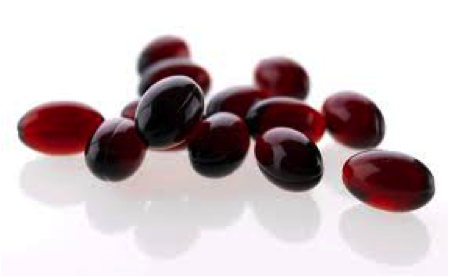- Home
- Our story
- Nutrition Quickies
- Products
- Ingredients
- Articles
- Success Stories
- Contact Us
- Timeless Radiance
- JayLab Pro Prosta-7
- BloodFlow Guardian
- VG-6
- Ultimate Sleep Solution
- Fermented Turmeric
- Collagen Complex
- LeptiSense
- Ultra-Cleanse Detox
- Krill oil
- Probiotics
- Advanced Joint Support
- Gluco Guardian
- Multi-vitamin (Active Core Complex)
- Renewal for men (T20)
- Protein powder
- Combo-packs
- Login
The Second Step To Improving Your Heart Health in 2021
 Way back in the 1970's, a group of researchers first stumbled upon a truly unique experience.
Way back in the 1970's, a group of researchers first stumbled upon a truly unique experience.They were busy studying Greenland Inuit and discovered that they had a very low risk for heart disease and cardiovascular-related deaths - even though they consumed a high-fat diet.
They discovered though, that most of the fat in their diet came from wild-caught fish sources.
That's right, omega-3 fatty acids!
So the researchers continued to study, and the boom of omega-3 fatty acids - in the form of fish oil, flaxseed oil, and later Krill oil - came to be born.
Now, countless studies have shown that omega-3 fatty acids are beneficial to heart health, by improving cholesterol levels...
Lowering inflammation levels by competing with omega-6 fatty acids...
And, lowering triglycerides (a product of a high carbohydrate diet)!
However, as the research continued to come in, they found many more uses for omega-3 fatty acids.
They found them to be beneficial at improving not only heart health, but eye health, brain health, and joint health.
No wonder why omega-3 fats continue to be the most widely researched AND USED fat around!

The fact is: Due to the tremendous amount of good research out there, omega-3 fatty acids still continue to be recommended or prescribed by doctors, cardiologists, and others in the medical community.
A New Study
Now, before you tell me about the one negative study recently released, I want to give you the results of another, more recently published study.
In this study, they assessed omega-3 fatty acids - from wild caught fish, farmed fish, alternative sources, and supplements - and what type of effects they had on improving heart health.
.jpg) They did mention that national heart agencies and government agencies are recommending increasing your intake of fatty fish - like salmon - in order to boost your intake of omega-3 fatty acids.
They did mention that national heart agencies and government agencies are recommending increasing your intake of fatty fish - like salmon - in order to boost your intake of omega-3 fatty acids.Also, they mention how you can get omega-3 fats from other sources, such as yeast, algae, and plant sources (ALA).
However, the bottom line is: You should increase your intake in order to get more omega-3 fats into your day or week!
Now, the question they wanted answered in this review is if omega-3 fatty acids from NONFISH sources were as effective at boosting omega-3 fatty acid profiles AND if it had similar health effects.
Now that you are waiting eagerly to find out the answer...
They did show that non-fish sources of omega-3 fats - like a supplements, plant sources, or another source - may still be important for the health of your heart.
In the study, they showed that chia seeds and flax seeds - which are high in omega-3 fats - may contain less bioavailable omega-3 fatty acids, due to the demands and processing by your body.

Also, they mentioned that algae and yeast sources of omega-3 fatty acids were high quality and readily available for use in your body.
Although they found that some sources vary in their effectiveness, they did conclude that the omega-3 fatty acids - DHA and EPA - are still important nutrients to include in your diet.
Get More Omega-3 Fats
The number one recommended way to increase your omega-3 fatty acids is to consume more wild-caught fatty fish - and not farmed due to the altered omega-3/omega-6 ratio - like salmon and others.
However, using other sources, such as plant, algae, yeast, and omega-3 fatty acid supplements, may also increase the concentration of omega-3 fats in your blood and your heart tissue.
No matter which way you include omega-3 fatty acids, it’s important to understand that you may be doing a great service to your health by providing it with nutrients that could decrease your risk for a number of potential diseases - but most notably - heart disease.



References:
Jump D, Depner CM, Tripathy S. Omega-3 fatty acid supplementation and cardiovascular disease Thermatic Review Series: New Lipid and Lipoprotein Targets for the Treatment of Cardiometabolic Diseases. The Journal of Lipid Research. 2012 Aug;53:2525-2545.

